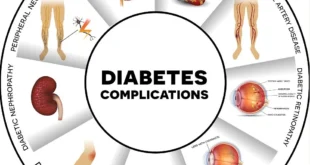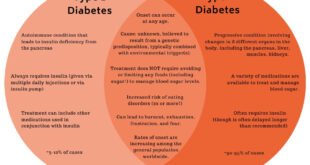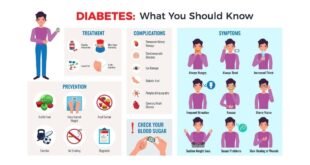🍬 What Triggers Diabetes? Understanding the Causes and Risk Factors
Diabetes is a chronic condition that affects how your body processes blood sugar (glucose). While genetics play a role, lifestyle choices and environmental factors are often the main triggers. Understanding what causes diabetes—and what speeds up its onset—can help you take control before it takes control of you.
🧬 Types of Diabetes and Their Causes
There are two main types of diabetes, each with different causes:
1. Type 1 Diabetes
- Cause: An autoimmune reaction where the body attacks insulin-producing cells in the pancreas.
- Triggering Factors: Genetic predisposition, viral infections, and environmental triggers.
- Note: It usually develops in childhood or adolescence and is not linked to lifestyle.
2. Type 2 Diabetes
- Cause: The body becomes resistant to insulin or doesn’t produce enough.
- Triggering Factors: Lifestyle and metabolic factors play a major role.
⚠️ What Speeds Up the Onset of Type 2 Diabetes?
Here are the most common factors that can accelerate the development of diabetes:
- Poor Diet
Diets high in sugar, refined carbs, and unhealthy fats increase insulin resistance. - Lack of Physical Activity
Sedentary lifestyles reduce the body’s ability to regulate blood sugar effectively. - Obesity and Overweight
Excess fat, especially around the abdomen, disrupts insulin function. - Chronic Stress
Stress hormones like cortisol can raise blood sugar levels over time. - Family History
Having diabetic parents or siblings increases your risk. - Age
Risk increases after age 45, though younger people are increasingly affected. - High Blood Pressure and Cholesterol
These conditions often go hand-in-hand with insulin resistance. - Sleep Disorders
Poor sleep quality or sleep apnea can disrupt glucose metabolism.
🛡️ Prevention Starts with Awareness
Diabetes doesn’t happen overnight. It builds silently over time. But the good news? It’s largely preventable—especially Type 2. Here’s how:
- Eat a balanced diet rich in fiber, whole grains, and lean proteins.
- Exercise regularly—at least 30 minutes a day.
- Maintain a healthy weight.
- Manage stress through mindfulness or relaxation techniques.
- Get regular checkups and blood sugar screenings.
In conclusion, diabetes is often triggered by a mix of genetic and lifestyle factors. While you can’t change your genes, you can change your habits. Prevention is possible—and it starts with knowledge, discipline, and daily choices.
 Kolnest.com – Know the Signs. Change the Future. Entertainments, Gadgets, Business, News, Articles, Love, Travel, Heallth
Kolnest.com – Know the Signs. Change the Future. Entertainments, Gadgets, Business, News, Articles, Love, Travel, Heallth






